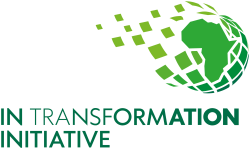The In Transformation Initiative, in collaboration with the Hanns Seidel Foundation, facilitated the first two training days of a newly developed Leadership Collaboration Programme for the Waterberg District community.
The programme aims to strengthen leadership capacities as well as better collaboration between leaders from municipalities, business formations, members of civil society and traditional leaders in the Waterberg District.
During the first two-day session, which took place on 28 and 29 July, Module 1 was presented through training sessions by Prof Drikus Kriek, Mr Charles Makola, Mr Paul Graham and Prof Nick Binedell.
Prof Kriek, who serves as one of the chief coordinators and developers of the training curriculum, welcomed the participants and gave the introductory remarks on the first day. He is Dean of the Faculty for Post Graduate Studies and Director of the Doctoral Programmes at the IEDC-Bled School of Management in Bled, Slovenia. He is Associate-Professor of Leadership at the IEDC Faculty of Post-Graduate Studies where he teaches Leadership, Leading High-Performance teams, and Organisation Development courses on various programmes.

Following the welcoming and introduction, Makola, the former Mpumalanga ANC deputy chairperson, and Nkangala district municipal manager, started off the programme by giving participants an overview of the district’s municipality structures and legislation, along with its position in South Africa as a whole.
Through this presentation on the situational awareness of the district, it became clear that an effective communication strategy from the municipality’s side, is necessary for it to function optimally.
This strategy must, according to Makola, be driven by those in top leadership positions. Makola furthermore called for the different spheres of government to support each other, and that these “spheres align themselves around the national policy priorities”.
Following Makola’s presentation, Graham, an experienced adult educator who served as the CEO of a South African based think tank involved in building democratic societies in Africa, facilitated a session with the aim of contextualising the Waterberg District.
During his presentation, Graham gave a statistical breakdown of the district. Participants learned what the census found about the district. This included looking at various statistics on the district, including employment rate, income and gender statistics, as well as public service, age levels and education.
Prof Binedell, the Founding Director and Sasol Chair of Strategic Management of the Gordon Institute of Business Science, presented the final session of the first training day. His topic was also based situational awareness and the importance of keeping small towns afloat in South Africa.
He emphasised the need for infrastructure, institutions, and individuals, not only in small towns, but in South Africa as a whole. He further spoke about the economic and leadership potential, despite the many challenges in the country.
One of the main points Prof Binedell made during his presentation, is to prioritise jumping into action and “getting the job done”.
On the second day, Prof Kriek presented sessions on leadership which centred around what it means to be a leader. This included looking at the characteristics of leaders and what leadership is not.
During this presentation, examples from the South African, as well as an international, contexts were given.
Prof Kriek further placed an emphasis on self-awareness, teamwork, an organisational development approach and contextual awareness. This laid the foundation for the rest of the upcoming modules.
The purpose of this leadership training programme is to deepen the participants’ confidence in their own leadership; position themselves as leaders given demands of a particular context; enable participants to establish effective working relationships with stakeholders; implement skills, tools, and techniques to solve problems effectively; implement solutions through tangible projects.

The second module in the training programme will be presented on 11 and 12 August 2021, by Khosi Jiyane, of The Human Edge Training and Consulting, who is a Clinical Psychologist with more than a decade’s experience in facilitating and coaching transformative learning interventions.
The entire training programme will be presented in four modules, presented from July to September 2021. Our partners in this venture are the Hanns Seidel Foundation, experts from the University of the Witwatersrand (WITS), the Gordon Institute of Business Science (GIBS) and leadership development professionals from the organisations such The Human Edge Training and Consulting, Giving Wings – Strategic Consulting, Development & Training and Paradigm People Solutions.

